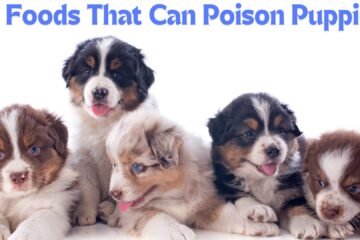In the realm of backyard farming and sustainable living, innovative solutions and unconventional approaches often lead to intriguing questions, such as the feasibility of feeding dog food to chickens.
This inquiry not only piques curiosity but also underscores the critical importance of understanding animal nutrition and ensuring the health and well-being of our feathered friends.
Given the diverse dietary needs of chickens, coupled with the intricate formulation of dog foods, this topic demands a thorough exploration.
Particularly, examining a high-quality dog food brand like Ollie offers a unique case study into the broader question, providing insights into whether such a feeding practice could ever be advisable or beneficial.
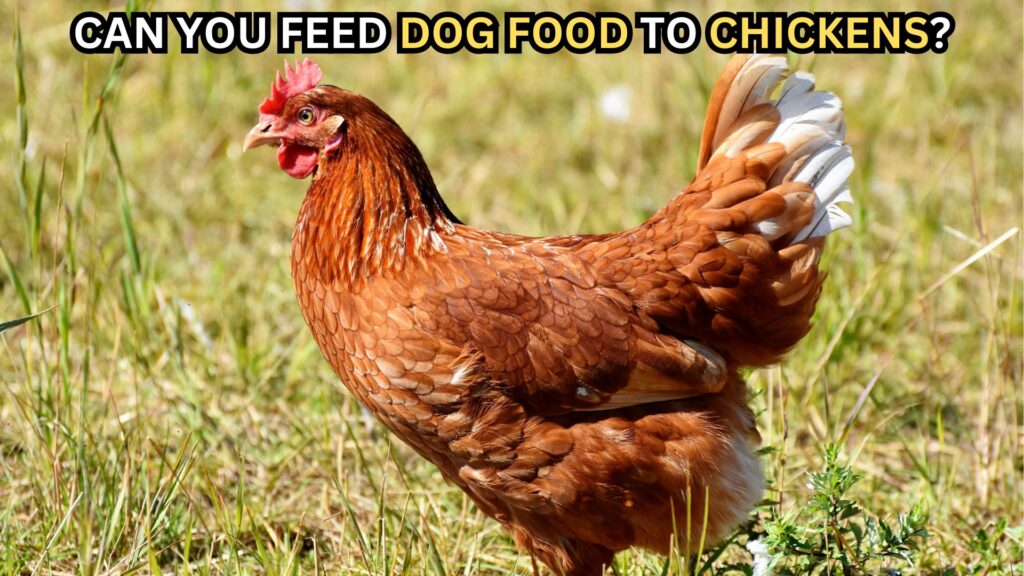
Understanding the Nutritional Needs of Chickens
Chickens, like all animals, require a balanced diet to thrive, consisting of proteins, carbohydrates, fats, vitamins, and minerals.
- Proteins are crucial for growth, feather development, and egg production, necessitating a higher protein intake for young birds and laying hens.
- Carbohydrates provide energy, while fats are essential for the absorption of certain vitamins and also serve as an energy source.
- Vitamins and minerals play vital roles in metabolic processes, bone health, and overall physiological functions.
The specific nutritional needs of chickens can vary significantly depending on their age, breed, and purpose.
For instance, egg-laying hens have higher calcium requirements to ensure strong eggshells, while meat birds and younger chickens might need more protein for rapid growth.
Balancing these nutritional needs is paramount for their health, productivity, and longevity.
Overview of Dog Food Composition
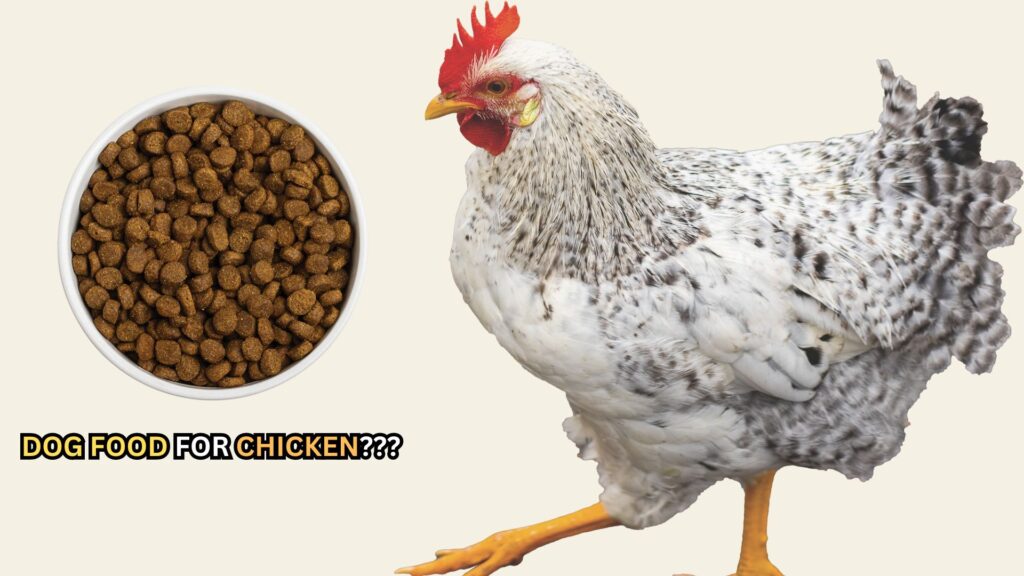
Dog food, formulated to cater to the dietary needs of canines, significantly differs from poultry feed in its composition. The primary ingredients in dog foods, including those from high-quality brands like Ollie, typically comprise meats, grains, vegetables, and sometimes fruits, alongside added vitamins and minerals.
These ingredients are selected and balanced to support the health, energy levels, and dietary requirements of dogs, which naturally differ from those of chickens.
Dogs, being primarily carnivorous, require a diet with a higher protein content and specific amino acids that are not necessarily in line with what chickens need.
Furthermore, dog foods often contain higher fat content and different types of vitamins and minerals that are specifically tailored to canine health. For example, dog food might include more vitamin A and D, which are crucial for dogs but can lead to toxicity in chickens if over-consumed.
Additionally, the presence of certain ingredients like onions, garlic, or chocolate in dog treats or specialized foods can be harmful or even fatal to chickens.
In contrast to conventional chicken feed, which is designed to meet the all-encompassing nutritional requirements of chickens, dog food lacks certain elements critical for avian health.
The absence of adequate levels of calcium, necessary for eggshell production, is one such example.
Hence, while dog food might momentarily satisfy the hunger of chickens, it falls short of providing a balanced diet suited to their unique nutritional needs.
Case Study: Feeding Ollie Dog Food to Chickens
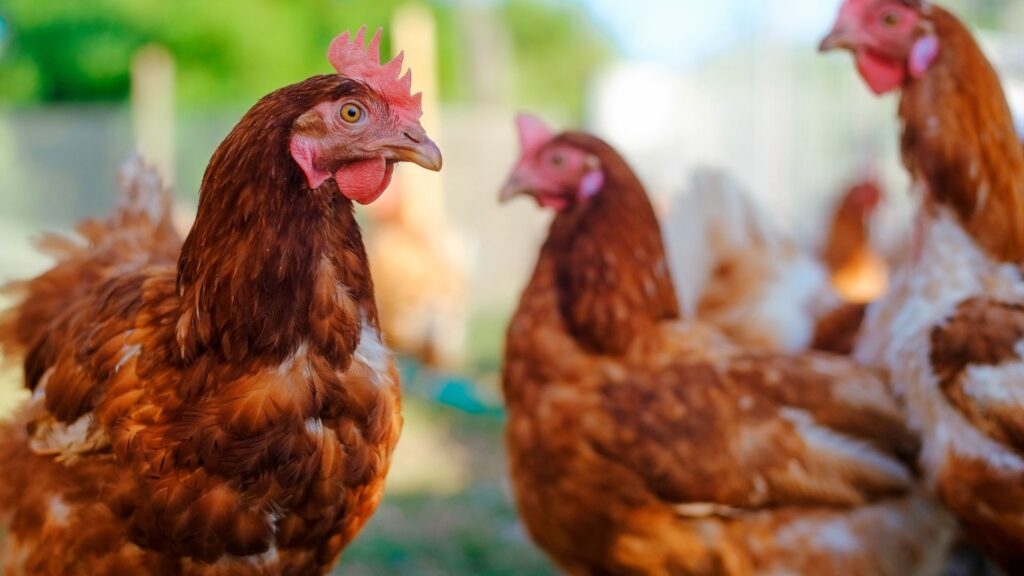
When examining the feasibility of feeding Ollie dog food to chickens, it’s imperative to scrutinize the product’s ingredients and nutritional profile.
Ollie dog food is known for its high-quality, human-grade ingredients, including real meats, vegetables, and fruits, with formulations designed to cater to the specific nutritional needs of dogs.
The brand emphasizes balanced nutrition, devoid of fillers and artificial preservatives, which might initially suggest a degree of suitability for chickens. However, the devil lies in the details.
The primary concern is whether Ollie dog food meets the unique nutritional requirements of chickens, particularly in terms of protein content, amino acids, and essential vitamins like calcium and phosphorus, critical for bone health and eggshell quality.
While the protein levels in Ollie dog food might be sufficient, the type of protein and its amino acid profile may not align perfectly with what chickens require.
Additionally, the calcium to phosphorus ratio in dog food is not optimized for poultry, potentially leading to metabolic bone diseases in chickens over time.
Potential Risks and Considerations
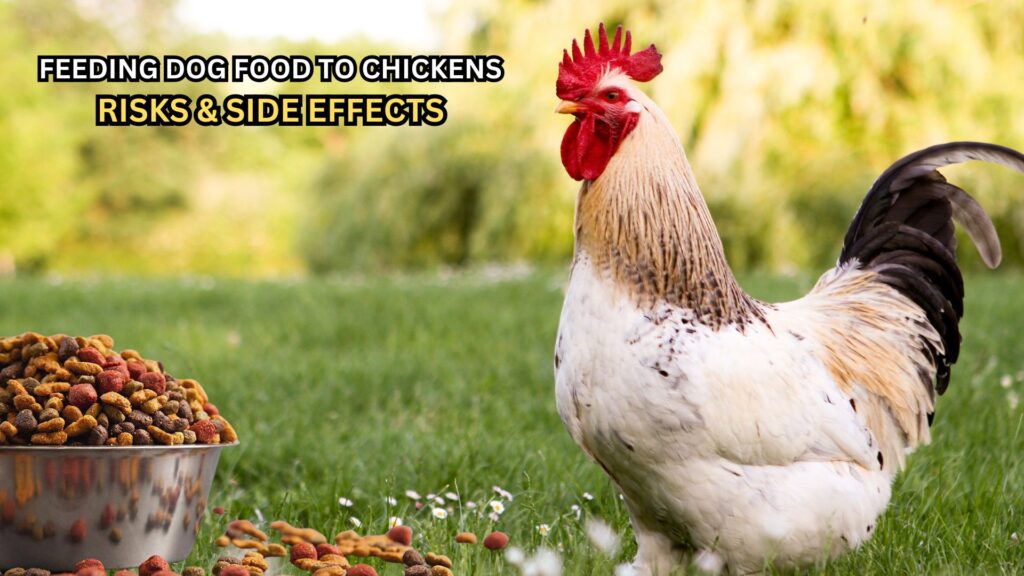
The risks of feeding dog food to chickens extend beyond nutritional imbalances. Certain ingredients common in dog food, while safe for canines, could pose toxic risks to chickens.
Moreover, the introduction of diseases from mammalian meat products to avian species is a potential concern, although minimal, depending on the processing and quality control standards of the dog food.
Legal and ethical considerations also come into play, especially for chickens raised for human consumption, either as meat or egg producers.
Regulatory guidelines on feed and food safety could render the practice non-compliant, aside from the ethical implications of feeding animal by-products not intended for avian species.
Alternatives to Dog Food for Emergency or Supplemental Feeding
Given the potential risks and nutritional discrepancies, seeking safer and more suitable alternatives for emergency or supplemental feeding becomes paramount.
Options such as grains, vegetables, and commercially prepared poultry feed offer balanced nutrition designed to meet the needs of chickens.
In emergencies, scrambled eggs, oats, or cooked rice can provide temporary sustenance without the risks associated with dog food.
When introducing new foods to chickens, start with small quantities to monitor their reaction and ensure there are no adverse effects.
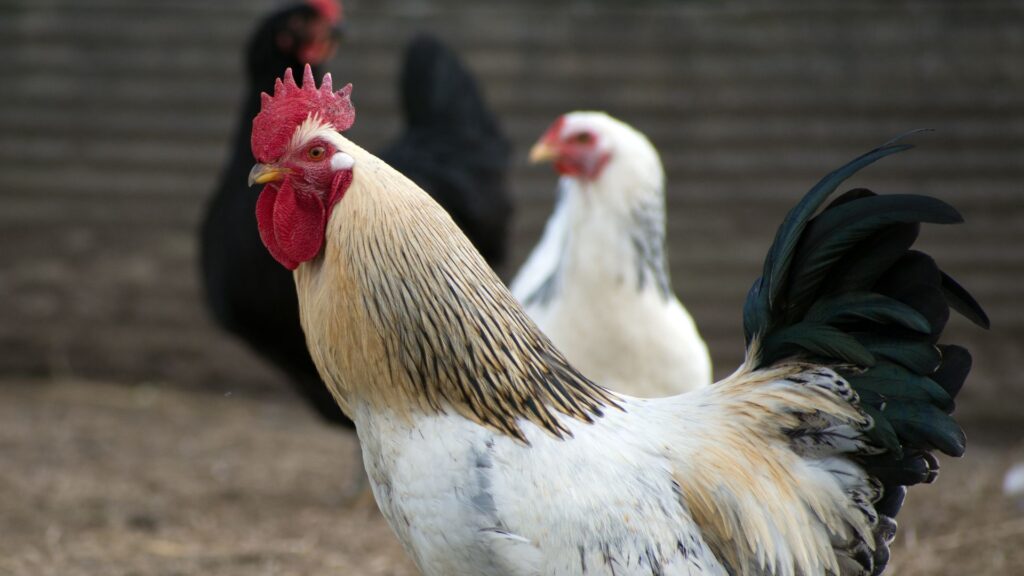
Always prioritize foods that contribute to a balanced diet, enriching the chickens’ regular feed rather than replacing it entirely.
Maintaining diversity in the diet can help ensure that nutritional needs are met without compromising the chickens’ health or productivity.
Ultimately, while the curiosity surrounding the use of dog food like Ollie’s for chickens may stem from a place of resourcefulness or necessity, the practice is fraught with more risks than benefits.
Emphasizing proper nutrition tailored to the specific needs of chickens is crucial for their well-being and overall health. For those seeking emergency or supplemental feeding options, focusing on safer, species-appropriate alternatives is the most prudent course of action.
FAQs
Can chickens eat dog food safely?
Chickens can physically consume Dog food, but it is not recommended as a regular part of their diet. Dog food does not meet the specific nutritional requirements of chickens and can lead to health issues over time due to nutritional imbalances.
What are the potential benefits of feeding Ollie dog food to chickens?
While not advisable, the high-quality ingredients in Ollie dog food, such as real meats and vegetables, might seem like a nutritious option.
However, any potential benefits are outweighed by the risks associated with the improper balance of nutrients for chickens.
What should I do if my chicken accidentally eats dog food?
If a chicken accidentally consumes a small amount of dog food, monitor its health closely for any adverse effects. In most cases, a one-time ingestion in small quantities may not cause harm.
However, if you notice any unusual behavior or symptoms, consult a veterinarian.
Are there any specific ingredients in dog food that are harmful to chickens?
Yes, certain ingredients commonly found in dog food, such as onions, garlic, and chocolate, can be toxic to chickens. Additionally, the high salt content in some dog foods can also be detrimental to their health.
How can I ensure my chickens are getting a balanced diet?
To ensure a balanced diet for chickens, provide them with a high-quality commercial poultry feed designed for their specific life stage (e.g., starter, grower, layer).
Supplement this feed with grains, vegetables, and occasional fruits as treats. Always ensure they have access to fresh, clean water.
Summary
Throughout this blog post, we’ve explored the complex question of whether dog food, including high-quality brands like Ollie, is suitable for chickens. The consensus, supported by nutritional science and poultry care best practices, is clear: dog food does not meet the unique dietary requirements of chickens and poses several health risks due to nutritional imbalances and potentially toxic ingredients.
Feeding chickens a balanced diet formulated specifically for their nutritional needs is paramount to their health, productivity, and well-being. While the curiosity about alternative feed options like dog food is understandable, especially in emergencies, it’s crucial to prioritize safe, species-appropriate nutrition.
Before making any significant changes to your chickens’ diet, consulting with a veterinarian or a poultry nutrition expert is advisable to ensure their health and dietary needs are adequately met.
We encourage our readers to share their experiences or questions about feeding dog food to chickens or any other alternative feeding practices. By fostering a community of learning and support, we can collectively ensure the well-being of our backyard flocks.
Remember, the best care for our feathered friends comes from understanding and meeting their specific needs, emphasizing the importance of proper nutrition in their overall care regimen.


